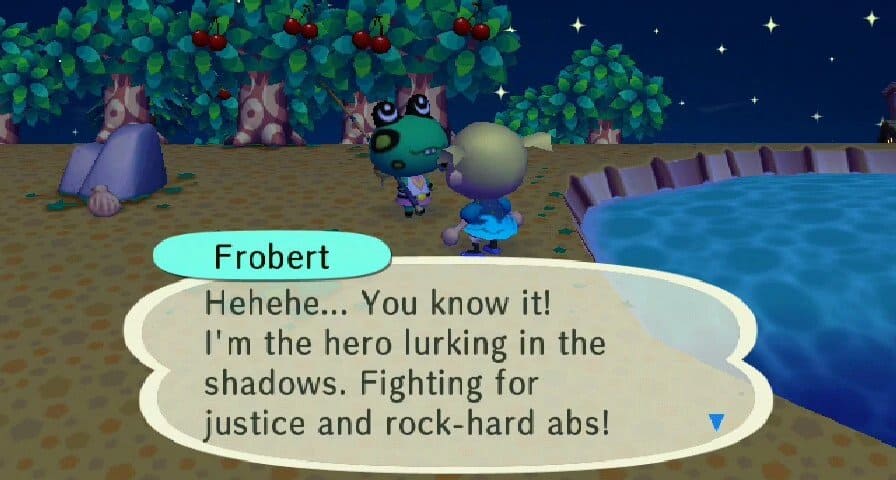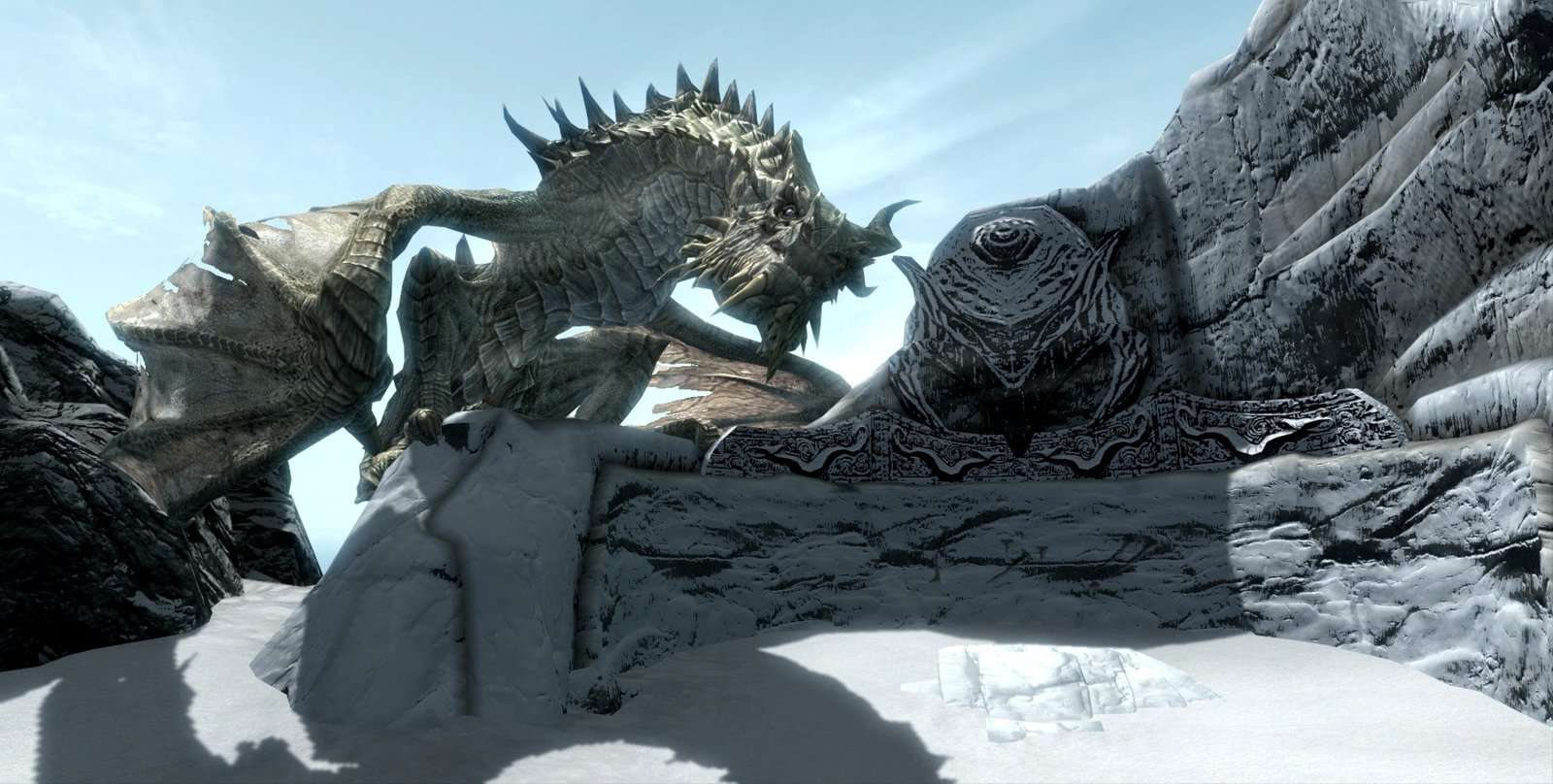From Star Wars to Game of Thrones, fictional languages have evolved to a higher standard, with their own grammar rules, pronunciation, and logic. It has become popular to consult language experts in order to harness a great deal of believability. However, when comparing big-budget blockbusters to a game studio that can’t afford such luxuries, an interesting comparison can be drawn.
In most cases, when fictional languages are employed in video games, they’re gibberish made up to sound cool. Is this intentional, or the fault of budgetary restrictions? Does this effect work, or does it leave the player feeling isolated in a world that sounds so unlike our own? Let’s dive into why these languages are invented and how they work.
The Sims – Simlish
Sometimes life can get a little repetitive. Everyone constantly asks you “how are you?”, and you’re supposed to reply “fine”. If someone was tasked with transcribing the average person’s speech throughout the day, there would be an overwhelming amount of “um”. Will Wright, creator of The Sims, kept this issue in mind when consulting dialogue in a highly repetitive game. What he and his team knew is that they didn’t want their characters to be speaking in English. What a great choice that would turn out to be. The randomised colourfulness of Simlish is a welcome encounter after hearing a Whiterun guard tell me how he took an arrow to the knee for the seventeenth time.
Navajo, Ukrainian, and Estonian were the languages experimented with. However, the team found this approach to render speech that was still too recognisable and repetitive. In order to create a more universal and fresh language, the team decided to create a totally new, fictional language: Simlish.
Simlish has no rules. The voice actors speak gibberish that they think reflects the mood of the sim. Of course, this hasn’t stopped players from compiling unofficial dictionaries. After all, the voice actors can only record so many lines, and soon even gibberish becomes familiar to longtime players. After the thousandth hour poured into your simulated world you tend to pick up that “Sul Sul” means “hello”.
Simlish has become a popular phenomenon in gaming culture. This language has such power that The Sims 3 managed to convince a few stars to record Simlish versions of their hit songs. You can catch the likes of Katy Perry singing on the radio in the game. “Last Fruby Noop” is a certified bop.
Animal Crossing – Animalese
The peaceful world of Animal Crossing provides perhaps the cutest fictional language in history. Animalese sounds very computer-generated. However, if you dive deeper into the language you’ll find it’s quite similar to real languages. For English speaking players, if you record an Aminalese conversation and slow the clip, you can hear distinct English words. It sounds just like slurred and slowed down English. Along with randomly placed emphasis on syllables, it gives a foreign yet familiar effect.
More interestingly, Japanese speaking players have said that understanding Animalese is much easier for them. The Japanese language is quite phonetic, leading to the animals often pronouncing Japanese words correctly.
Reflecting on our discoveries, it appears clear that Animalese was cheap to produce. Is Animalese a stylistic choice? Or is it a cheap way to make the world more unique? Either way, it works. It matches the colourful, peaceful aesthetic of the world, and makes all the characters likeable. Creating a joyful environment and experience is what the game aims for, and Animalese aids in this. Animal Crossing is a lively sounding world. It gets even better when they sing in Animalese. I could listen to (and laugh at) ridiculous KK Slider covers all day.
The Elder Scrolls V: Skyrim – Thu’um/Dovahzul
Interwoven heavily with the game lore and main story, Skyrim’s Thu’um/Dovahzul language has a power like no other. This archaic dragon language is a double-edged sword. Firstly, it is the way dragons communicate. As well as this, it is used for verbal battles that translate to physical violence. That’s right, when dragons have a debate they could literally tear each other to shreds just with their voices.
Armed with this language, the Dragonborn masters ‘the Shout’, AKA the weaponised form of the Thu’um. Each Shout is made of three words, directly translating to the type of effect it has. For instance, early on in the game the player masters the ‘Unrelenting Force’ Shout. Fus for ‘force’, Ro for ‘balance’, and Dah for ‘push’ creates a magical shout that can topple enemies.
Vigilant players have found real language counterparts for a number of words in Thu’um. Old English, Sanskrit, and German have counterparts to a fair few of these words. Apart from the foreign-sounding words, the Thu’um follows the same grammatical rules as English. From these indicators, it appears Bethesda’s team borrowed from several languages, adopting and slightly changing words. The effect, though low effort, creates an old-sounding language. With the unique written version of the language, it makes for a compelling add-on to the Skyrim experience.
Video Game Languages Succeed
All these fictional languages help their games maintain the general tone they’re aiming for. There is no genuine attempt at realism or believability, but there doesn’t need to be. Players don’t care to scrutinise fictional languages. Players love diving into lore, playing around with these new sounds, and making fun of them. If I had a dollar for every meme I’ve seen using Animalese it would be enough to pay Bethesda to record a few more generic NPC lines. At the end of the day, the world is made a little better when people can have fun with creative liberties. So, until next time, as you’d say in Simlish: Dag Dag!
- Canon Novels Every Star Wars Fan Will Enjoy - March 20, 2020
- How Fictional Languages Work in Video Games - March 11, 2020
- 4 Parasite-Like Movies You Haven’t Seen - February 20, 2020



